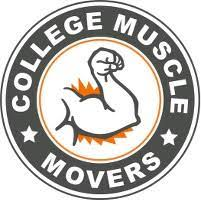Highly rated local moving companies for St. Paul to Cincinnati moves
Organizing a move from St. Paul to Cincinnati can be daunting, particularly when trying to identify a reliable mover that offers long-distance services. We’ve done the groundwork for you, evaluating 35 local movers in St. Paul known for their long-distance moving capabilities, assessing them on pricing, customer experiences, and reliability.
Here are the best local movers for long-distance moves from St. Paul to Cincinnati.
- Matt’s Moving Company : 4.66 out of 5 stars
- Piepho Moving & Storage, Inc.: 4.62 out of 5 stars
- Metcalf Moving & Storage: 4.5 out of 5 stars
- The Move Crew: 4.5 out of 5 stars
- Daymakers Moving & Storage: 4.5 out of 5 stars
Company Info
State license #: 374236
Years in Business: 17
DOT #: 1704106
Services Offered
- Local moves
- Interstate moves
- Packing
- Unpacking
- Offices
- Pianos
- Crating
- Storage
- Pay by credit card
Company Info
State license #: 286311
Years in Business: 73
DOT #: 286311
Alternate Names: Rochester Transfer & Storage Company
Services Offered
- Local moves
- Interstate moves
- International moves
- Packing
- Unpacking
- Offices
- Pianos
- Hot Tubs
- Pool Tables
- Art
- Antiques
- Grandfather clocks
- Crating
- Crane vans
- Shipment tracking
- Full-valuation coverage
- Safes
- Pay by money order
- Pay by cash
- Pay by credit card
Company Info
Years in Business: 105
DOT #: 1127088
Services Offered
- Local moves
- Interstate moves
- International moves
- Packing
- Unpacking
- Offices
- Pianos
- Crating
- Full-valuation coverage
- Storage
- Pay by credit card
Company Info
State license #: 380620
Years in Business: 10
DOT #: 2552505
Services Offered
- Local moves
- Interstate moves
- Packing
- Unpacking
- Offices
- Pianos
- Crating
- Storage
- Pay by credit card
Company Info
Years in Business: 8
DOT #: 2593674
Services Offered
- Local moves
- Interstate moves
- Packing
- Unpacking
- Offices
- Pianos
- Pool Tables
- Art
- Antiques
- Crating
- Full-valuation coverage
- Storage
- Safes
- Pay by credit card
How much does it cost to move from St. Paul to Cincinnati?
On average, moving companies in Minnesota charge about $209 per hour. Consider these typical rates for a full-service moving company, moving container, or rental truck:
| Move size | Moving company | Moving container | Rental truck |
|---|---|---|---|
| Studio / 1 bedroom | $1,120 – $3,525 | $723 – $1,680 | $497 – $849 |
| 2 – 3 bedrooms | $2,191 – $5,716 | $1,239 – $2,447 | $489 – $1,019 |
| 4+ bedrooms | $3,866 – $7,429 | $1,691 – $3,143 | $656 – $1,286 |
Cost to hire movers from St. Paul to Cincinnati
When planning a move to Cincinnati from St. Paul, for a studio or one-bedroom, you’ll likely pay between $1,120 and $3,525. If you have a two- or three-bedroom home, expect costs to fall somewhere between $2,191 and $5,716 for the same journey. Moving four or five bedrooms? Typical prices range from $3,866 to $7,429.
Cost of moving containers from St. Paul to Cincinnati
When you’re heading from St. Paul to Cincinnati, and you’re only moving a few items, you can expect to spend between $723 and $1,680. For a two- or three-bedroom place, prices usually fall between $1,239 and $2,447. If you’re packing up a large home with four or more bedrooms, the cost can range from $1,691 to $3,143. Want more details? Check out our complete PODS cost guide.
Explore the top budget-friendly moving container companies to make your move from Minnesota easier and more affordable.
Cost of moving truck rentals from St. Paul to Cincinnati
A moving rental truck from St. Paul to Cincinnati is generally the cheapest option, but it requires you to do all of the driving and labor.
Moving a studio or one-bedroom apartment in a rental truck will cost around $497 to $849. A two to three-bedroom move will cost $489 to $1,019, and moving a home with four or more bedrooms from St. Paul to Cincinnati costs around $656 to $1,286.
These quotes include the estimated fuel cost.
Factors that affect moving costs from St. Paul to Cincinnati
The cost of St. Paul movers will depend on:
- How much stuff you have: A one-bedroom move from St. Paul to Cincinnati may only cost $1,833, whereas a full four-bedroom relocation can approach $6,699.
- The season you’re moving in: Movers charge more in summer, the busiest months in St. Paul.
- Which type of mover you use: Save with a truck rental ($497–$1,167), but expect more hassle than hiring pros.
What to know before moving from St. Paul to Cincinnati
Expect a bump in monthly expenses after the move – Cincinnati runs about -32% higher for singles and 50% higher for families than St. Paul.
Singles spend around $2,467 in St. Paul versus $3,633 in St. Paul; families pay $6,418 compared with $4,290.
Dig into the side-by-side details here:
| St. Paul | Cincinnati | |
|---|---|---|
| Average 1 BR rent | $1,488 | |
| Average 3 BR rent | $2,893 | |
| Average home value | $278,221 | $232,735 |
| Average income (per capita) | $63,483 | $65,682 |
| Cost of living (single) | $3,633 | $2,467 |
| Cost of living (family of four) | $4,290 | $6,418 |
| Unemployment rate | 4.9% | 4.9% |
| Sales tax | 9.88% | 6.5% |
| State income tax | 9.85% | 3.5% |
- Rent is about 7% more expensive in Cincinnati than in St. Paul. Make sure to include this increase in your monthly budget.
- Expect your mortgage payments to be easier on the wallet, as home prices are around 16% cheaper in Cincinnati than in St. Paul.
- There’s good news: the average income differences between Cincinnati and St. Paul are within a modest 5%, minimizing financial adjustments.
- Expect to spend less on everyday needs such as food, fuel, and utilities in Cincinnati. The cost of living for a single person there is 32% below that of St. Paul.
- When considering a family move to Cincinnati, prepare for a potential rise in household expenses. The cost of living for a family here is 50% higher than in St. Paul.
- Cincinnati and St. Paul have roughly the same unemployment rate (within about 5%), so you likely won’t see a major shift in job availability or competition from what you’re used to.
- Sales taxes are 34% cheaper in Cincinnati compared to St. Paul. This could significantly slash costs for families or individuals with higher spending on taxable necessities.
- Income taxes are 64% less in Ohio compared to Minnesota, offering a relief on your paycheck, which can enhance your budgeting options.
Here’s the side-by-side view of common monthly bills and day-to-day expenses in St. Paul versus Cincinnati:
| Living Expense | St. Paul | Cincinnati |
|---|---|---|
| Basic utilities | $128.95 | |
| Cell phone plan | $56.81 | |
| Dozen eggs | $3.26 | |
| Loaf of bread | $3.30 | |
| Fast-food/casual eatery (one meal) | $15.00 | |
| Dinner for 2 (mid-range restaurant) | $60.00 | |
| Gym membership | $30.82 |
How life is different in St. Paul vs. Cincinnati
| St. Paul | Cincinnati | |
|---|---|---|
| Population | 303,176 | 309,317 |
| Transportation score | 8 | 6 |
| Walkability score | 60 | 49 |
| Bike friendliness score | 64 | 36 |
| Crime index | 50.86 | 48.47 |
| Safety index | 49.14 | 49.53 |
| Air quality | Good | Good |
- Cincinnati’s population is within about 5% of St. Paul, so they’re very similar in size.
- Cincinnati’s public transportation score of 6 out of 10 is lower than St. Paul’s score of 8.
- Cincinnati is less walkable than St. Paul with a score of 49 out of 100 vs St. Paul’s 60 out of 100.
- Cincinnati has a bike-friendliness score of 36 out of 100, which means it isn’t as accessible or safe for cyclists as St. Paul, which has a score of 64.
- Cincinnati and St. Paul have a similar crime rate with scores of 48.47 and 50.86, respectively.
- Cincinnati and St. Paul have a similar safety level, with scores of 49.53 and 49.14.
- Air quality in Cincinnati is Good, and in St. Paul it’s Good.
Other things to consider for your St. Paul to Cincinnati move
- HOA rules: Costs across St. Paul and Cincinnati are largely aligned, so your monthly budget shouldn’t shift much after the move.
- Elevator reservation: If your building has an elevator you’ll want to check on how to reserve it for move day.
- Truck parking permits: Many cities require special permits for parking large moving trucks. Check in advance to see if one is needed for your move.
- State licensing: Although a local license is not required in Ohio, make sure the moving company you’ll be hiring is registered with U.S. Department of Transportation (USDOT). To verify if you’re dealing with a legal and licensed mover, you may ask them their USDOT registration number. Ensure the company you choose is licensed to handle your move.
- State regulator: To confirm a moving company’s license in Ohio, visit the state’s public utilities commission.
- Moving Permits: Moving permits aren’t typically required in Ohio, but always confirm with local authorities to avoid surprises.
- Change of address: You can set an official move date on the form and this way all of your mail will get properly forwarded to Cincinnati. Get started here.
- Moving company insurance: Each state has its own requirements for the level of insurance moving companies must carry. Opt for cost-free Released Value Protection from movers, offering minimal coverage with a maximum liability of 60 cents per pound per article. For comprehensive coverage, explore alternatives with your chosen moving company or consider a third-party insurance provider.
- Moving checklist: Let our moving checklist guide you through the process and help ensure nothing slips through the cracks.
Where to live in Cincinnati
With your sights set on The Blue Chip City, these are some of the most popular neighborhoods to consider in Cincinnati.
Best neighborhoods for singles
- Central Business District
- Clifton
- Columbia-Tusculum
- Oakley
- Over-The-Rhine
Best neighborhoods for families
- Hyde Park
- Mount Adams
- Mount Lookout
- Oakley
- Pleasant Ridge
Things to do in Cincinnati
With your move to Ohio complete, you can dive right into experiencing Cincinnati. From cultural attractions to outdoor adventures, you’ll never run out of things to do:
- Arts and culture: Cincinnati is home to museums and cultural arts centers like the American Classical Music Hall of Fame and Museum, American Sign Museum, Art Academy of Cincinnati, and Betts House.
- Outdoor recreation: The city’s Ault Park, Smale Riverfront Park, Mt. Airy Forest, and Eden Park — among other spots — perfect for hiking, biking, or simply soaking up the outdoors.
- Sports: Experience the energy of a live game and back the home team at an Cincinnati Reds (MLB)Cincinnati Bengals (NFL)FC Cincinnati (MLS)Cincinnati Cyclones (ECHL)Florence Y’alls (Frontier League)FC Cincinnati 2 (MLS Next Pro) game.
FAQ
When is the best time to move from St. Paul to Cincinnati?
If you’re flexible with timing, spring and fall are great seasons to move from St. Paul to Cincinnati. You’ll dodge the heat, the crowds, and the higher moving costs typical of peak season in St. Paul.
When is the cheapest time to move from St. Paul to Cincinnati?
Want to save on your move from St. Paul to Cincinnati? Consider scheduling it in winter, when demand is lower and rates are often cheaper. Our moving discounts guide shows you how.
How long does a move from St. Paul to Cincinnati take?
The 697-mile move from St. Paul, MN, to Cincinnati, , takes one to six days. Some St. Paul movers may offer expedited moving if you need it faster. If you need more time, ask your mover about storage options in Cincinnati.
What kinds of discounts do St. Paul movers offer?
Many local moving companies provide ways to save, from ongoing deals to seasonal offers. In St. Paul, 3 movers provide AAA member discounts. 1 movers offer special pricing for military members. 2 movers extend discounts to senior citizens.
Check with each mover to confirm discount availability, eligibility requirements, and how much you can save.
Need help moving a piano or antiques in St. Paul?
These delicate items require movers with specialized training. Currently, 28 movers in St. Paul provide piano moving services. 13 can transport antiques with care. Statewide, there are 42 piano movers and 17 antique movers, with nationwide counts at 2,299 and 1,464.
Demand for these services can be high, so schedule your specialty move as far ahead as possible.
Helpful moving resources
St. Paul moving services
Popular Minnesota routes
- Minnesota to Ohio car shippers
- Minnesota to California movers
- Minnesota to Florida movers
- Minnesota to Georgia movers
- Minnesota to Illinois movers
- Minnesota to Michigan movers
- Minnesota to New York movers
- Minnesota to North Carolina movers
- Minnesota to Ohio movers
- Minnesota to Pennsylvania movers
- Minnesota to Texas movers
- See All Moving Routes
Not what you were looking for?
Check out other categories that can help you find the information you need!

























